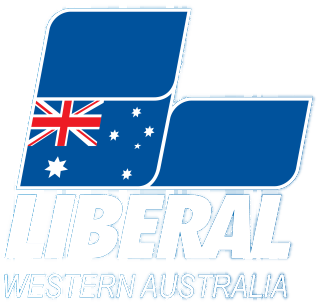SENATOR DEAN SMITH
SHADOW ASSISTANT MINISTER FOR COMPETITION, CHARITIES AND TREASURY
SENATOR FOR WESTERN AUSTRALIA
OPINION PIECE – THE WEST AUSTRALIAN
18 September 2024
WE’RE WORSE OFF THAN IN GFC
Remember 2008?
It was the year the iPhone was first released in Australia, the ABC first aired Q&A, and Federal Parliament heard its first welcome to country.
It was also the peak of the Global Financial Crisis, the year that Lehman Brothers infamously collapsed, and a time of worldwide economic uncertainty.
Australia was not immune to the shockwaves of that crisis – characterised by business closures, layoffs, and crippling financial pressure on households.
For many, Labor’s current cost-of-living crisis and our stagnating economy will bring back memories of that time nearly two decades ago.
But what if I told you that, across many metrics, Australians are actually worse off today than they were during the GFC?
These statistics will surprise you.
GDP growth was at 2.9 per cent in 2008, this year it is at one per cent – the slowest rate of growth since the 1990s recession.
The average household’s saving ratio was at 2.8 per cent. Today it is just 0.9 per cent.
In 2008, amidst one of the worst financial meltdowns the world has ever seen, household debt as a share of income was 164 per cent.
In 2024 it is 20 per cent higher, at 185 per cent.
Perhaps the most alarming comparison is the number of business insolvencies.
Last financial year 1,000 WA businesses failed, victims of Labor’s tandem cost-of-living and cost-of-doing business crises.
Today’s figures are double what they were in 2008.
That’s right, there have been twice as many insolvencies in WA this year than at the height of the GFC.
It’s on a more modest scale at a national level, but still concerning, with 10,000 businesses insolvencies in 2008 compared to 11,000 this year.
Even the best spin doctor on Treasurer Jim Chalmers’ team could only argue that these national figures are about equal.
Imagine being ‘on par with GFC levels’ as a best-case economic scenario.
That’s where Jim Chalmers and Labor find themselves now – and unfortunately they’re taking Australians with them.
These statistics uncover a damning reality for the Albanese Labor Government: Australians are, across multiple measures, doing worse than they were during the peak of the Global Financial Crisis.
They’re keeping less of what they earn, they’re in greater debt, and they’re working in and trying to run businesses that are struggling to stay afloat.
This isn’t because Australians can’t manage their money, they can.
It’s because Labor can’t manage the nation’s money.
And Australians are struggling to make ends meet in an economy held in a vice-like grip by Labor’s sticky, homegrown inflation.
This reality appears to be unnerving the Treasurer, who has started resorting to personal attacks against Peter Dutton, attempting to shift blame to Reserve Bank of Australia Governor Michelle Bullock, and generally deflecting responsibility for Australia’s economic woes.
It’s quite an unravelling from a man who came into the job as a self-confident economic philosophiser, publishing essays about how he was going to “transform” Australian capitalism.
If he pulled his head out of the clouds, Jim Chalmers would see that this Government’s policies have indeed transformed our economy – just not for the better.
The sad result of Labor’s economic mismanagement is that we have lost our status as the “lucky country”.
We were once the exception to the rule, the envy of the world, weathering economic storms from commodity price shocks to Asia-Pacific regional disruptions, even the GFC.
In fact, whilst Australia’s economy took a hit in 2008, it was still ahead of most developed economies by almost any measure.
Successive Budget surpluses delivered during the Howard years, and key reforms like the GST, paved the way for Australia to avoid a recession during the GFC – one of the only nations to do so.
As then RBA Governor Glenn Stevens said at the time, “there would be very few countries, if any, which would not envy Australia’s fiscal position”.
Now, Australia is the exception for all the wrong reasons.
Our inflation rate is higher than all the G7 nations, including the UK, USA, Germany, Japan, Italy, Canada and France.
Our rate of economic growth is lower than the average of the world’s advanced economies and we are experiencing a per capita recession.
Worst of all, the gap between our savings ratios and that of other developed economies has widened to a chasm – the average Australian household is saving 3 per cent less than those in the US, 10 per cent less than the UK, and nearly 15 per cent less than the EU.
Australians deserve better.
For decades, we have come to expect a certain way of life.
Now Labor and its fiscal incompetence are risking it, failing to meet the high standard we rightly expect of an Australian Government.
So it’s no surprise that the latest Essential polling data shows 52 per cent of Australians think the country is headed in the wrong direction, and other polls this month have recorded a majority two-party preferred preference for the Coalition.
Despite their best efforts, the public knows that the buck stops with the Treasurer and the Albanese Government.
Fifty-one pre cent of voters believe the Government is primarily responsible for getting a lid on inflation – with only 27 per cent blaming the RBA.
It has failed to deliver on its promises, failed to manage the economy, and sent our nation in the wrong direction.
It’s time to get the economy and the country back on track – and only a Coalition government will do it.
